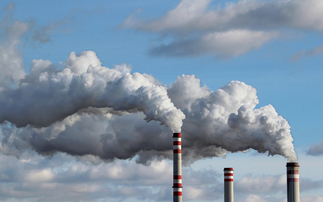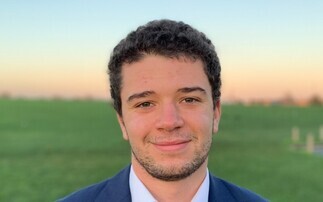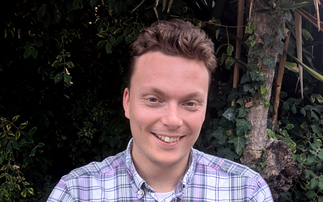Countries most at risk from climate change warn of looming ‘disaster' as they break from major blocs to call for more ambitious temperature target
Countries most vulnerable to climate change have seized the political initiative at the start of the UN climate talks in Paris by challenging the US, China and Europe to raise their ambitions and set a long-term temperature goal of 1.5C rather than the 2C target.
As more than 140 world leaders made short opening statements on Sunday, 44 countries that are members of the Alliance of Small Island States (Aosis), along with other vulnerable countries, declared that the 2C goal being backed by all major blocs would seal the fate of hundreds of millions of people in countries like Bangladesh, the Philippines, Sudan and Vietnam.
"Our members are particularly vulnerable to climate extremes and climate change impacts and we are acutely aware of the vanishingly little time remaining to adopt a legally binding climate treaty," said Thoriq Ibrahim, environment and energy minister of the Maldives and chairman of Aosis.
"We are very concerned that the INDCs [intended nationally determined contributions] have us heading for about 3C of warming. This would spell disaster for many small island states and other vulnerable countries. It is therefore critical that the Paris agreement is ‘designed for ambition' to quickly get us back on track," he said.
Aosis wants countries to "peak" their emissions urgently. "A long-term temperature goal of well below 1.5 degrees must be reflected in the Paris agreement, along with an indicative pathway for achieving it, including urgent peaking and deep mid-century emissions reductions," said Ibrahim.
The alliance comprises mainly small, low-lying states in Africa, the Caribbean, Indian Ocean, Mediterranean, Pacific and South China Sea, including Belize, Cape Verde, the Maldives, Jamaica, Singapore and Papua New Guinea.
In a statement, the group said: "Warming has now reached 1C. At the same time, our islands are experiencing the impacts of an ongoing extreme El Niño and the science is telling us that such events will occur twice as often over the 21st century if we do not act strongly and decisively. Additional magnitudes of warming will only increase the risk of such severe, pervasive and irreversible impacts."
On Monday, the leaders of countries from the Climate Vulnerable Forum (CVF) will join the Aosis group in calling for a more ambitious target. The CVF, which includes larger countries such as the Philippines and Bangladesh, will break ranks with the G77 group that traditionally represents the views of most developing countries and sign a declaration urging a 1.5C target.
"We are the countries who will suffer the most from climate change and against whom all the big [negotiating] groups like the US, EU and G77 are aligned. We are the majority: 106 of the 195 countries of the world want this 1.5C target. But there is no democracy here. It's a power game and the powerful are not on our side," said the CVF's spokesman, Saleemul Huq. "We accept it is not realistic [in these talks], but it is the right thing to do."
The declaration will also be signed by Christiana Figueres, executive secretary of the UN Framework Convention on Climate Change, and Mary Robinson, former president of Ireland.
The initiative by the two climate vulnerable groups before the start of negotiations raises the political temperature in Paris. The two blocs have strong support from civil society groups around the world that do not accept the 2C target.
Mohamed Adow, Christian Aid's senior climate adviser, said: "Although today the leaders of the rich and powerful nations will make all the headlines, it is vital that the voices of the world's most vulnerable countries are heard.
"These countries have grown tired of empty words from world leaders and they cannot afford any more in Paris. They are reaching out between and across traditional negotiating blocs to help build a better and safer future for all of us.
"We are in danger of making these communities the global ‘canaries in the coal mine' and letting them suffer by allowing global temperatures to rise even two degrees above pre-industrial levels. For these countries, a two-degree world is a miserable one and they are right to use their high moral authority to call for bolder and more ambitious action from this summit."
In its statement, Aosis added: "The latest science confirms what we are seeing with our own eyes: the World Meteorological Organisation reports that 2011-2015 has been the warmest five-year period on record and that this year is on track to be the hottest ever."
This article first appeared at the Guardian
BusinessGreen is part of the Guardian Environment Network






